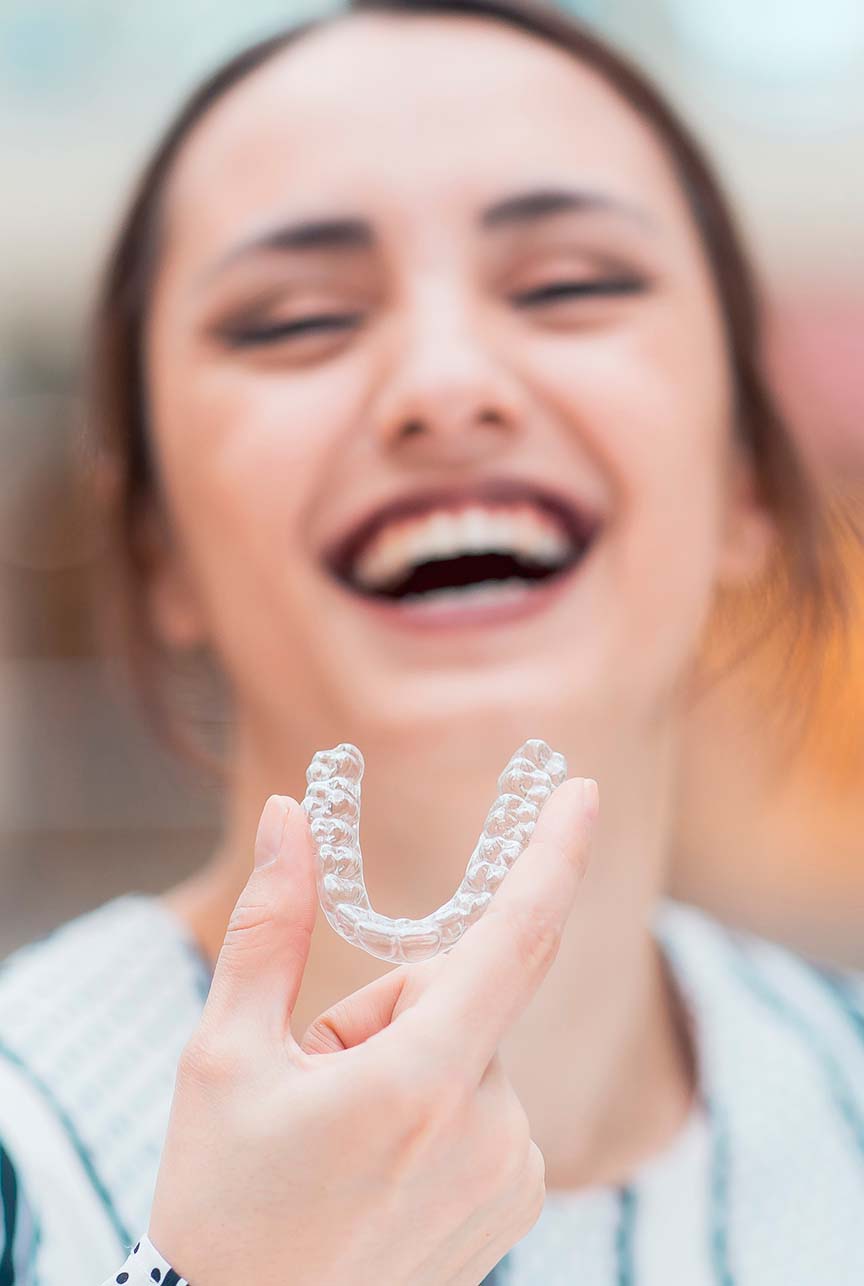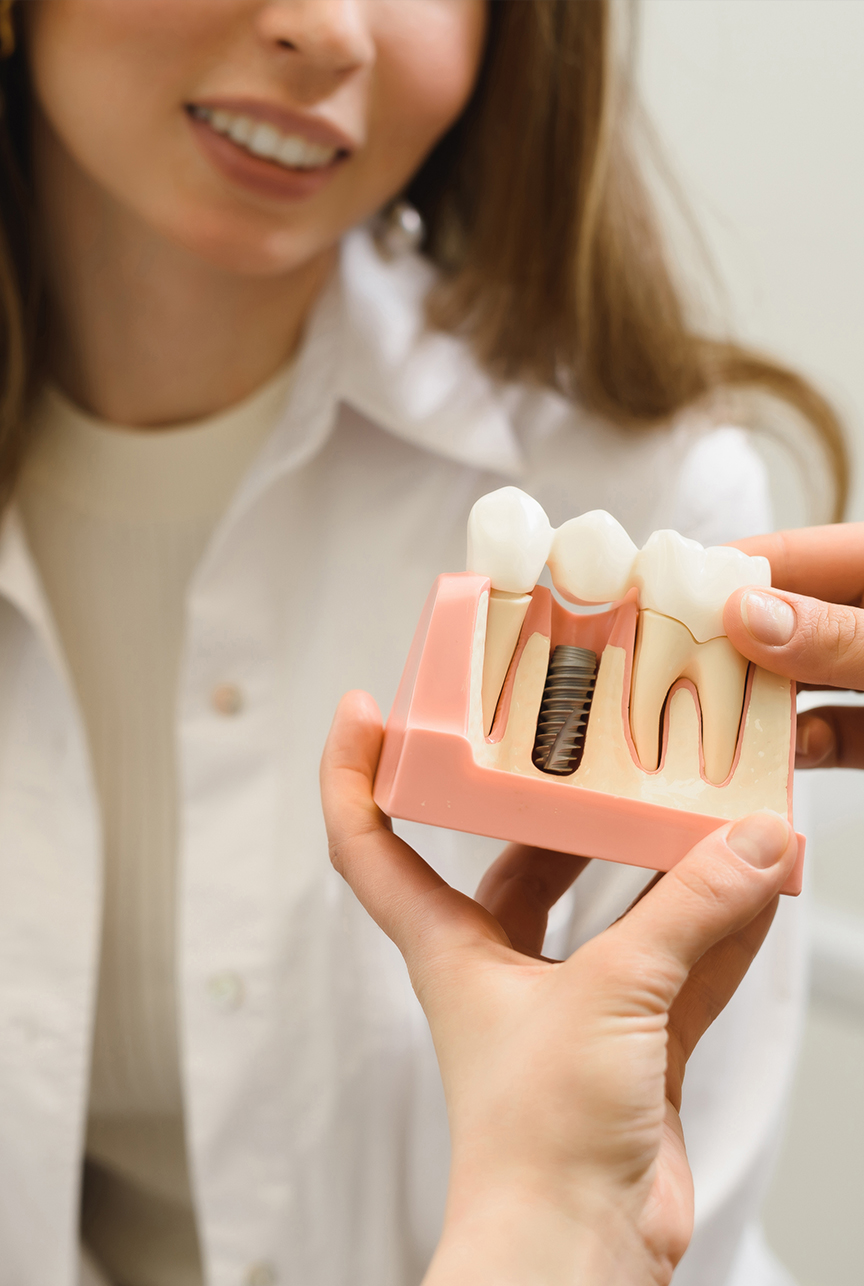Once we have determined that a crown is the right way to go, receiving this treatment usually takes place over two appointments. At the first appointment, we use local anaesthetic, so you don’t feel anything at the area being treated before preparing and shaping the tooth in question. Once this has been done, we’ll then take an impression which will be used to make your personal crown.
Your personal crown is made off-site at a dental laboratory and while it’s being made we can provide you with a temporary crown to ensure your comfort and the function of the tooth. Once the personal crown is ready, you can come back into the practice where we’ll fit it for you, cementing it into place once we’re sure it sits properly in the mouth, and the shape and shade are all correct.













